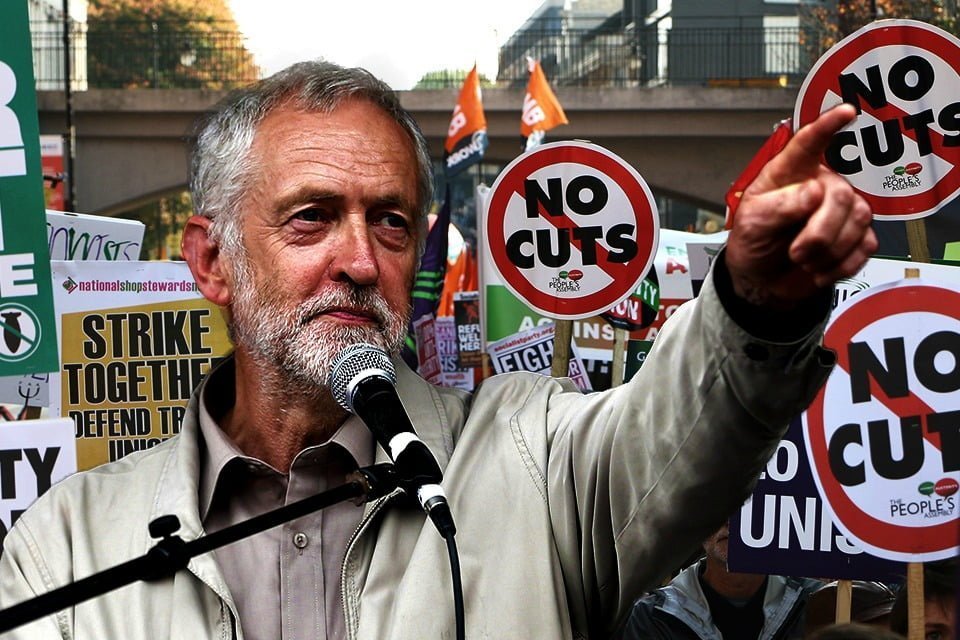Jeremy Corbyn and John McDonnell have made a number of bold and much-welcomed pledges in order to fix the “broken economy”. But what kind of economic programme should a Labour government carry out?
Delegates and visitors arriving in Liverpool this month for the annual Labour Party conference will know that – with the Tories mired in crisis over Brexit – another potential snap general is in the offing.
With this comes the prospect of a left-wing Labour government and an end to eight years of vicious Tory rule. For millions of workers and youth, this brings with it enormous hopes of abolishing austerity and reversing almost a decade of cuts.
For the bankers and bosses, however, the possibility of seeing Jeremy Corbyn and and John McDonnell enter Downing Street is more likely to elicit dread than joy. Indeed, a recent survey of UK executives found that a Corbyn government was close behind Brexit in terms of the perceived threat to British businesses.
And no wonder. Amongst a number of welcome pledges from the Labour leaders, Corbyn and McDonnell have promised to: nationalise rail, energy, and water; scrap tuition fees; and curb the rampant exploitation of workers in the so-called “gig economy”.
All of this will be music to the ears of the many but will send shivers down the spines of the super-rich few.
If such measures were implemented, Labour’s economic programme would vastly improve the lives of ordinary people, who have had to endure years of attacks and declining living standards.
For the capitalists, though, these policies pose a severe risk to their profits. For this reason, they will not go down without a fight.
The question we need to ask ourselves in advance of Labour coming to power, therefore, is: how can we put these plans into action and carry through Corbyn’s economic demands?
Paradigm shift
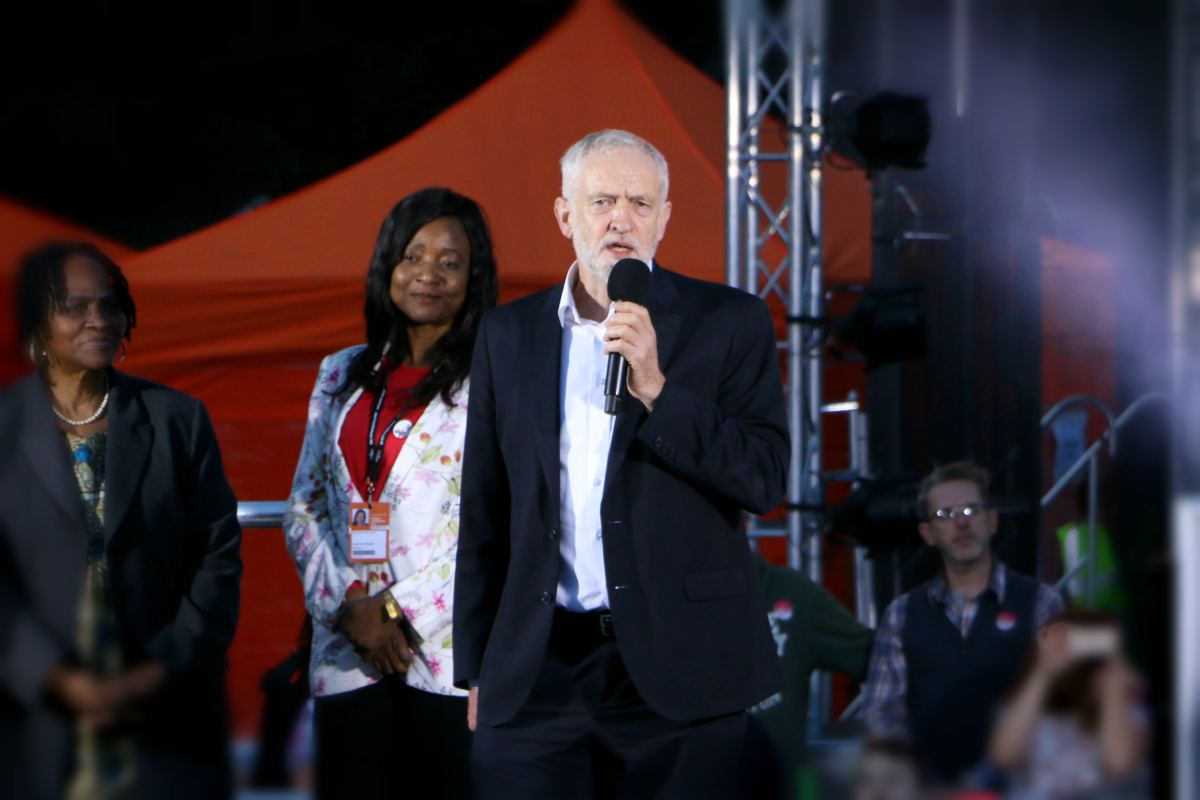 Jeremy’s election as leader in 2015 represented a turning point for the Labour Party and for the British political landscape as a whole. Now, finally, after two decades of Blairism, we had a Labour leader who is on the side of the working class, promising to end anti-trade unions laws and reverse privatisation.
Jeremy’s election as leader in 2015 represented a turning point for the Labour Party and for the British political landscape as a whole. Now, finally, after two decades of Blairism, we had a Labour leader who is on the side of the working class, promising to end anti-trade unions laws and reverse privatisation.
At the same time, Jeremy Corbyn’s leadership has fundamentally changed the economic narrative. After years of seeing Labour leaders parrot the Tories over the need for cuts, desperately attempting to prove themselves “respectable” and “responsible” managers of British capitalism, we now have someone willing to break with the near-universally accepted economic paradigm of austerity.
As the impact of the cuts sinks in and local councils (such as Northamptonshire) descend further into crisis, the failure of austerity is becoming apparent to all.
Recent disastrous examples of outsourcing and privatisation have boosted support for nationalisation. The collapse of Carillion exposed the Ponzi scheme of outsourcing. Elsewhere, the Conservative government has had to step in to bailout the billionaires formerly running the East Coast Mainline, and to bring a privatised prison in Birmingham back under public control.
It should come as no surprise therefore, that support for nationalisation is rising. Over 75% of people in opinion polls say they support the renationalisation of the railways and public utilities. Half even say they back the public ownership of the banks. This is why the demand to restore Clause IV is finding an echo amongst grassroots Labour members.
The result is that Theresa May and other leading Tories have repeatedly had to come out in defence of capitalism, promising an end to tax evasion and suggesting the idea of workers’ representation on company boards in order to fix the “rigged” economy.
As Jeremy Corbyn stated in his keynote speech at last year’s conference, and as has been discussed recently in the leading journals of British capitalism, it is clear that the political centre is shifting. Both the Tories’ programme of austerity and the so-called “Third Way” of Blairism has been thoroughly discredited and rejected.
But what is the alternative?
What is Corbynomics?
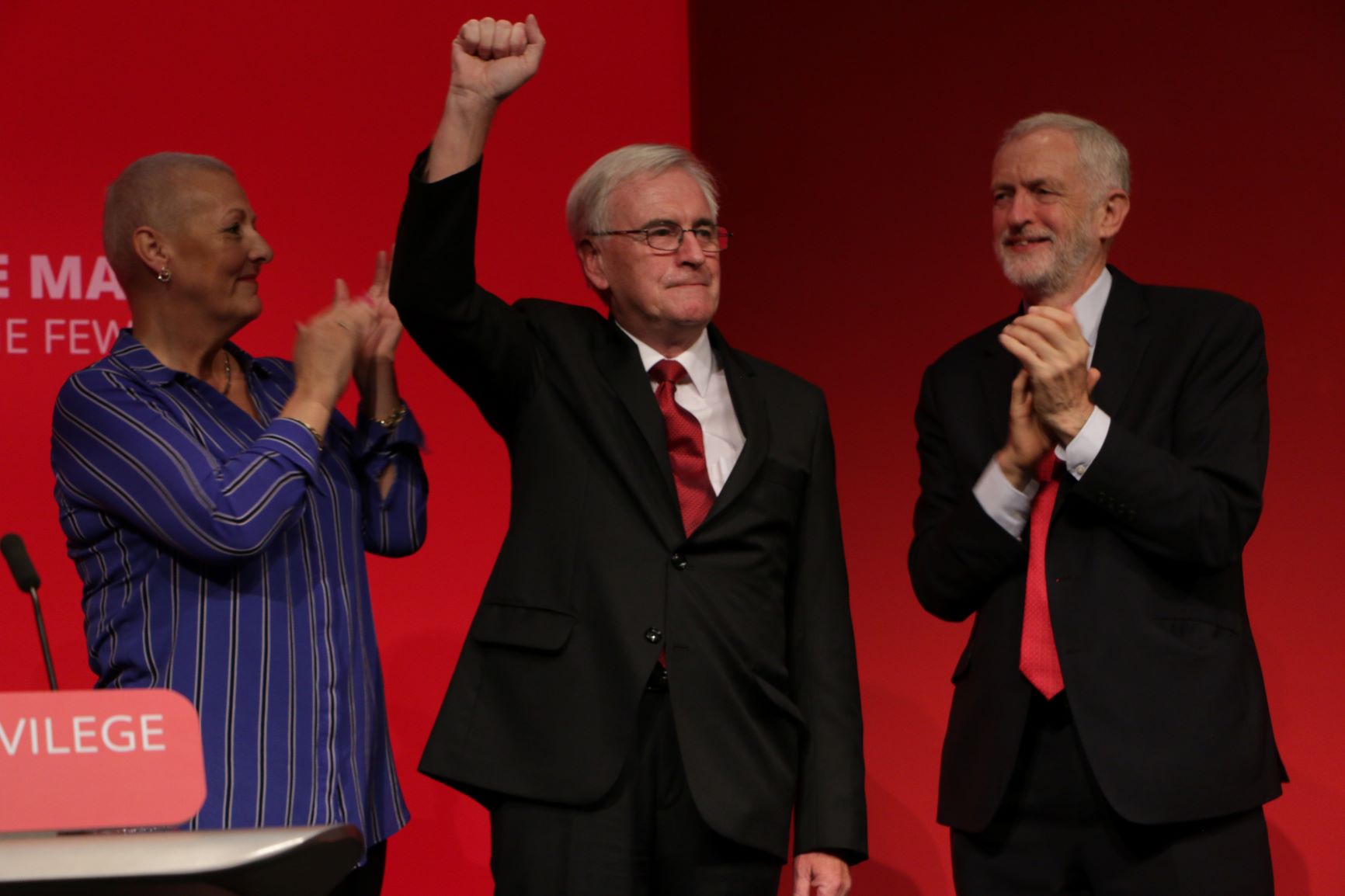 Ever since launching his leadership bid three years ago, Corbyn and his team – including left-wing ally and long-term friend John McDonnell as shadow chancellor – have sought to outline their economic alternative to Tory cuts.
Ever since launching his leadership bid three years ago, Corbyn and his team – including left-wing ally and long-term friend John McDonnell as shadow chancellor – have sought to outline their economic alternative to Tory cuts.
In turn, the hundreds of thousands of new Labour members and radicalised supporters who have joined the Corbyn movement have projected their hopes and dreams onto a relatively blank canvas provided by the Labour leader. This has generated a plethora of ideas and policy suggestions for Corbyn and McDonnell to take up.
The resultant programme has been dubbed “Corbynomics”, a slightly vague term that has come to mean different things to different people.
For Jeremy Corbyn’s pro-business critics, who consider anything other than complete submission to the City of London to be sacrilegious extremism, Corbynomics might as well be outright Marxist-Leninism.
For the Labour leader’s supporters, however, Corbynomics represents a burning desire for a change from the broken status quo of low wages, precarious employment and attacks on public services seen in modern day Tory Britain.
In the beginning, the economic alternative on offer largely consisted of a few catchy soundbites and phrases like “People’s Quantitative Easing” and “21st Century Public Ownership”.
In more recent times, however, the Labour leadership have fleshed their programme out. The 2017 general election Labour manifesto, for example, introduced important demands like nationalisation and an expansion of council housing.
Elsewhere, John McDonnell has travelled around the country with his “New Economic Tour” and “State of the Economy” conferences, outlining what workers (and businesses) could expect from a radical Labour government. Clearly the reforms offered by the shadow chancellor will have undoubtedly struck a chord with ordinary voters.
“The next Labour government will put democratically owned and managed public services irreversibly in the hands of workers, and of those who rely on their work,” he told the audience at the ‘Alternative Models of Ownership’ conference earlier this year.
And he continued even more assertively: “We aren’t going to take back control of these industries in order to put them into the hands of a remote bureaucracy,” McDonnell reassured listeners, “but to put them into the hands of all of you – so that they can never again be taken away.”
More recently, the shadow chancellor also announced another series of big changes at the TUC conference, promising to tackle the scourge of low pay and precarious work facing millions of workers in the “gig economy”.
Finally signaling a reverse of decades of Thatcherite anti-union laws, John McDonnell affirmed that a Labour government would carry through “the biggest extension of individual and collective rights our country has ever seen”.
Labour – John stated – would take on the bosses at companies like Deliveroo and Uber, providing all workers with access to sick pay, holiday pay, and parental leave, in order to “transform irreversibly the workplace and our working lives”.
This is the kind of fighting talk that will galvanise and mobilise workers and youth; a much needed breath of fresh air after years of Tory attacks and austerity on the working class.
Sabotage
 However, there is also a warning. The radical measures proposed by the Labour leadership will be met with fierce resistance from the ruling class. A Corbyn government should expect a bumpy ride from day one.
However, there is also a warning. The radical measures proposed by the Labour leadership will be met with fierce resistance from the ruling class. A Corbyn government should expect a bumpy ride from day one.
Indeed, we have already signs of what Labour could expect once in power. Before Jeremy Corbyn had even been elected as party leader, anonymous army generals were already saying they would consider carrying out a coup against a future Corbyn-led government.
Elsewhere, John McDonnell has stated that his team have been “war-game-type scenario planning” for a run on the pound. The Blairites, meanwhile, have been openly discussing the possibility of sabotaging the Labour Party by splitting away and forming a new “centre” party or national government.
And this is only a fraction of what Corbyn and McDonnell would face as PM and chancellor. The full weight of the establishment would be brought to bear on the Labour leadership. The already-hysterical media would be ramped into overdrive. And, most importantly, the markets and big business would begin waging an economic war against the government.
In response, Labour must carry out bold measures to defend the government and its policies, which will be supported by millions of workers. Against a strike of investment from the capitalists, we need nationalisation of the banks and financial institutions. Against economic sabotage from the bosses and bureaucrats, we need nationalisation of the major monopolies under workers’ control and management. And against a flood of capital out of the country, we need a state monopoly over foreign trade, imports and exports.
Learning the lessons
 This is the lesson that must be learnt from recent episodes across Europe – in particular, in France and Greece.
This is the lesson that must be learnt from recent episodes across Europe – in particular, in France and Greece.
In 2013, Francois Hollande, the leader of French Socialist Party came to power promising to tax the rich and invest in public services. Within a year, the French President was overseeing even deeper austerity than his right-wing predecessor.
By the end of his term, Hollande and his party were even attempting to ram through a reactionary set of changes to labour laws, making it easier to fire workers and strip them of their rights. Unsurprisingly, the Socialist Party were punished by voters for these actions, with their candidate coming fifth in the presidential election last year.
In Greece, the fall was even mightier. SYRIZA party came to power in January 2015, promising to end austerity and carry out radical measures. Within six months, however, after the rich and wealthy had funnelled their billions over the border, the new Prime Minister, Alexis Tsipras, was forced into a humiliating capitulation by the Troika.
In exchange for EU-ECB-IMF bailout money, the SYRIZA leader went against the massive OXI (no to austerity) referendum result, and accepted the draconian measures being demanded by the European capitalists.
Today, after years of cuts, the Greek economy is barely turning a corner. But that offers little solace to the masses, whose government have commited to decades of “balanced budgets” – that is, further cuts and austerity.
World slump on the horizon
 The reality is that the austerity measures and attacks seen over the past decade are not “ideological”. The cuts we have seen in Britain aren’t simply just the result of having a callous and cruel Conservative Party at the helm. As seen above, even supposedly radical left parties have been administers of austerity.
The reality is that the austerity measures and attacks seen over the past decade are not “ideological”. The cuts we have seen in Britain aren’t simply just the result of having a callous and cruel Conservative Party at the helm. As seen above, even supposedly radical left parties have been administers of austerity.
At the end of the day, austerity is not simply a “political choice”. It flows from the nature of the crisis-ridden capitalist system itself. The whole world economy has been stuck in a slump for a decade now, since the crash of 2008 ushered in a “new normal” of stagnation and cuts.
Indeed, living standards and working conditions have been under attack for decades longer, as deindustrialisation, globalisation, automation and attacks by the capitalists take their toll on jobs, wages and communities.
This is the situation that will face a Corbyn-led Labour government. And that is before taking into account the likelihood of a new world slump and the impact of Brexit.
Faced with such prospects, Labour must seek to break with this failed system and not attempt to patch it up. The whole of history has demonstrated that capitalism’s dog-eat-dog nature cannot be reformed away.
Of course, we welcome and fight for every genuine improvement to workers’ living standards. But at the present time, even the reforms won through struggle by previous generations are under attack. Pensions, pay, and public services: all are being stripped back as a result of the crisis of capitalism.
This is why a Corbyn Labour government must come out fighting, offering a socialist economic plan as a real alternative to capitalist crisis and cuts. As Largo Caballero, the socialist Prime Minister during the Spanish Civil War, stated: you can’t cure cancer with an aspirin.
Keynesianism vs socialism
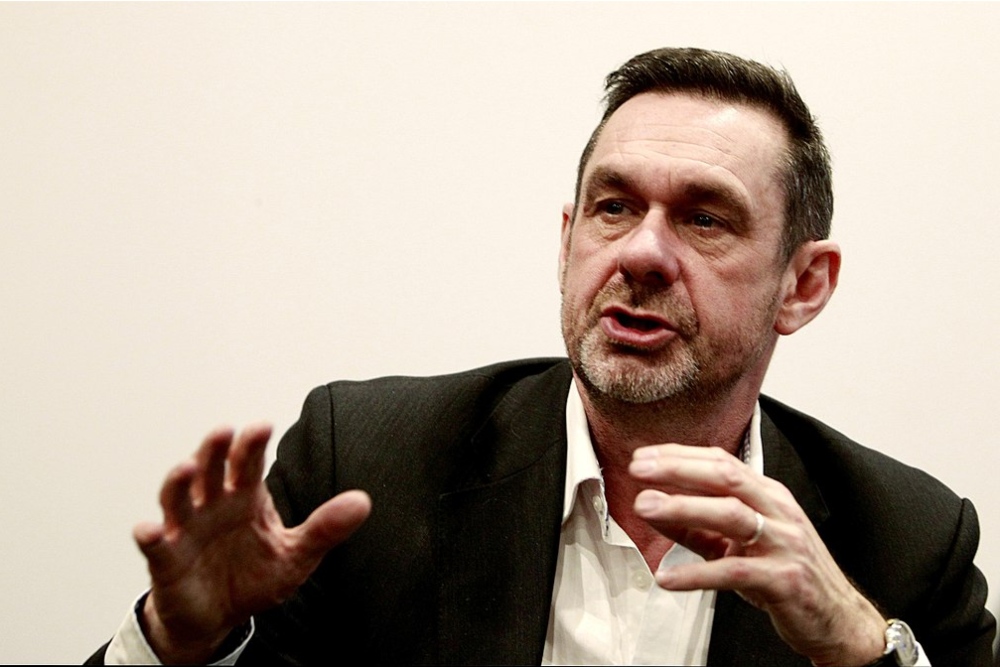 Unfortunately, however, the most prominent voices around the Labour leadership do not hold this view. Rather than proposing a genuine alternative to capitalism, these economic advisors seek to manage it, hoping to create a “kinder”, “greener” and “more responsible” form of capitalism.
Unfortunately, however, the most prominent voices around the Labour leadership do not hold this view. Rather than proposing a genuine alternative to capitalism, these economic advisors seek to manage it, hoping to create a “kinder”, “greener” and “more responsible” form of capitalism.
For example, Paul Mason, a former self-described Marxist who only a few years ago was writing about how to create a “post-capitalist” society, is now forcefully in favour of Keynesianism: “borrowing to invest”.
But Keynesianism does not – and will not – work. The government cannot simply “borrow” at will. It must go to the financial markets to find the money for any large-scale investment. But what City banker or Wall Street financier is going to lend to a left-wing government that is pledging to nationalise and improve workers’ wages and conditions?
Rather than lending to such a government, international creditors would launch an offensive of blackmail and sabotage against it, involving a strike of capital and the withdrawal of funds.
This is no idle threat, but has been seen by governments of the Left throughout history. Even the mildly reformist Labour government of Harold Wilson was faced with such threats. In his memoirs, for example, the former Prime Minister describes his meeting with the governor of the Bank of England:
“That night we had our most desperate meeting with the governor of the Bank. Claiming that our failure to act in accordance with his advice had precipitated the crisis, he was now demanding all-round cuts in expenditure, regardless of social or even economic priorities, and fundamental changes in some of the chancellor’s economic announcements…
“I asked him if this meant that it was impossible for any government, whatever its party label, whatever its manifesto or the policies on which it fought an election, to continue, unless it immediately everted to full-scale Tory policies. He had to admit that was what his argument meant, because of the sheer compulsion of the economic dictation of those who exercised decisive economic power.”
Of course the government can try to raise taxes from big business instead of borrowing from the banks. But the argument in response is the same.
As has been revealed by countless scandals in recent years, the rich can easily evade and avoid paying their “fair share”. Indeed, the Irish government even begged for Apple – the most valuable company in the world – not to have to pay its taxes owed, such was the craven desire for the tech firm’s investment.
Rather than borrowing from the markets or attempting to ‘tax the rich’, a Corbyn Labour government should nationalise the banks and major monopolies. Only in this way can we guarantee that the fruits of our industry are owned, controlled, and planned in the interests of society’s needs, and not for the profits of the few.
Appeals to business
 Mason’s Keynesian arguments are also being echoed by other leading figures in Labour’s economic team, such as Ann Pettifor, who has emphasised how a Labour government (in her opinion) should be “prepared to work with business and the City of London”.
Mason’s Keynesian arguments are also being echoed by other leading figures in Labour’s economic team, such as Ann Pettifor, who has emphasised how a Labour government (in her opinion) should be “prepared to work with business and the City of London”.
Stressing how “responsible” Labour is with the economy, Pettifor notes that, “Labour has a record, in key respects, of being more fiscally conservative than Conservatives”. “That is why they [business leaders] have been willing to listen to the shadow chancellor’s ‘tea offensive’.”
But no matter how much the shadow chancellor meets with big business to reassure them, the capitalists will never trust a left Labour government. They will continue to regard a Labour government as an existential threat to them and their interests.
In any case, as the Bible teaches, it is not possible to serve two masters at once. You cannot appease both the bosses and the workers. The profits of the former are dependent on the continued exploitation of the latter.
This is why we have seen such a race to the bottom – in Britain and worldwide – in recent decades, with workers in all countries seeing a falling share of wealth returning to them in the form of wages. No amount of appeals to the capitalists to be “nicer” and “fairer” will stem this tide.
Labour’s nationalisation
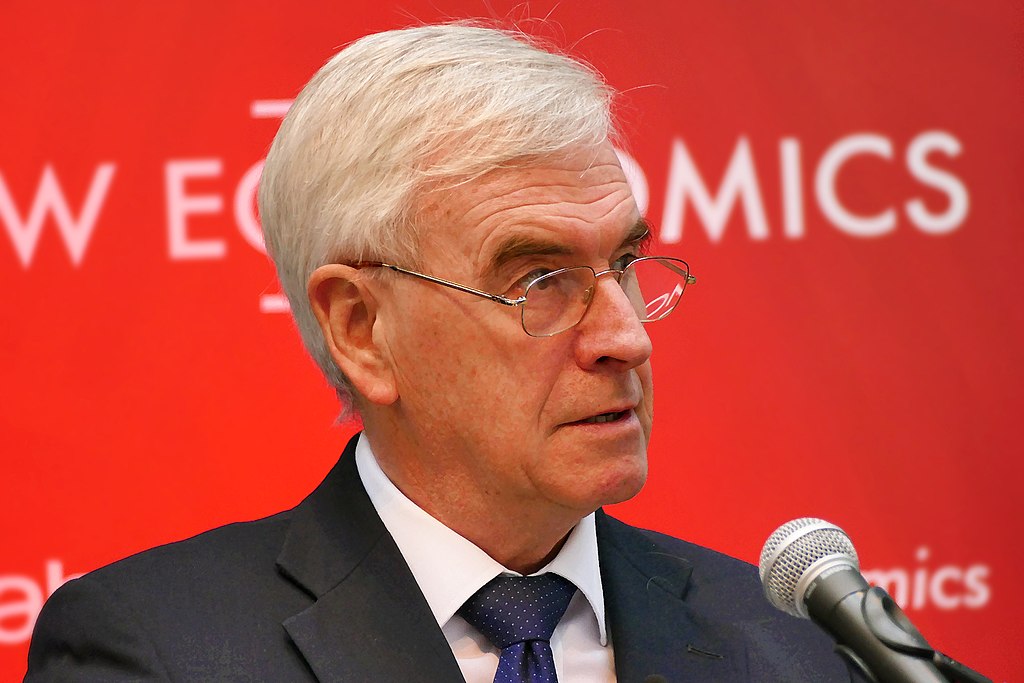 John McDonnell has argued that Labour’s nationalisation plans would cost “absolutely nothing”; they “would be cost-neutral because you would be bringing into public ownership an asset”. It would be just like “taking out a mortgage” when buying a home, he has stated. The government would borrow the money, gain an asset and then pay back your debts from the income generated by the asset – for example, the revenue from supplying customers with water or energy.
John McDonnell has argued that Labour’s nationalisation plans would cost “absolutely nothing”; they “would be cost-neutral because you would be bringing into public ownership an asset”. It would be just like “taking out a mortgage” when buying a home, he has stated. The government would borrow the money, gain an asset and then pay back your debts from the income generated by the asset – for example, the revenue from supplying customers with water or energy.
But big business is not going to be fooled by this. As the saying goes, there’s no such thing as a free lunch. Just as a prospective homebuyer with a bad credit history would be denied a mortgage by the bank, so too a radical left Labour government promising to nationalise private property would face outright hostility and aggression from the international financial markets.
Elsewhere, McDonnell has also suggested recently (in his speech to the TUC) that we can bring about “collective ownership” by forcing companies to give shares to their workers. But this “John Lewis model” does not address the real issue at stake: giving the working class control over the economy, rather than the capitalist economy having control over us.
In reality, giving shares to workers is not “collective ownership”. The capitalists, in this scenario, would remain very firmly in control. Indeed, workers in companies such as John Lewis do not have any real say in the running of the business.
If anything, giving individual employees a small personal slice of a business’ profits blurs the lines between the bosses and the workers, papering over their mutually antagonistic interests.
Most importantly, even fully worker-owned cooperatives are still subject to the laws of the capitalist market – i.e. forced by competition to produce at a lower cost than their more ruthless rivals. At best, such worker-owned companies would only be tiny islands of socialism in a sea of capitalism.
Instead of giving shares to workers, therefore, we must call for nationalisation under workers’ control, in order to abolish the anarchy of the market and bring about a democratic, rational, and socialist plan of production.
Take back control
 At the end of the day, any government that genuinely takes on the rich elite, threatening their power and privileges, will face an almighty backlash from the bankers and the entire establishment. The fact of the matter is that, under capitalism, the giant corporations and banks do run the country.
At the end of the day, any government that genuinely takes on the rich elite, threatening their power and privileges, will face an almighty backlash from the bankers and the entire establishment. The fact of the matter is that, under capitalism, the giant corporations and banks do run the country.
The answer to capitalist crisis and blackmail is socialist planning. You cannot plan what you do not control; and you do not control what you do not own. This is why we need to nationalise the major monopolies and banks – with no compensation to the fat cats.
Only then would we have the resources at hand needed to expand our social services, build the houses we require, reverse all Tory cuts, and provide a decent standard of living for all.
A strike of capital, sabotage from within the state apparatus and manoeuvers by the Blairites in the Parliamentary Labour Party: all of these will be used against a Corbyn Labour government that stands up to the banks and big business.
This is what Labour must prepare for. That means taking bold, decisive action against the billionaire class. Only in this way can we take control out of the hands of the capitalists and put it firmly in the hands of the organised working class.

